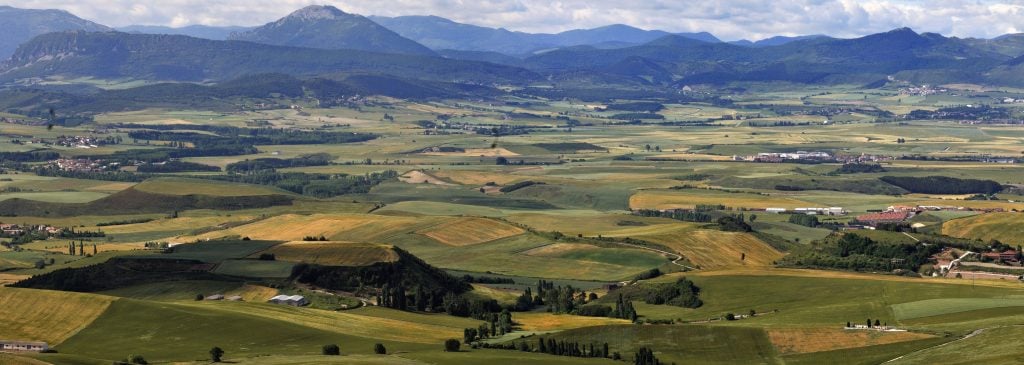Archaeology & History
The Earliest Words Ever Written in Basque Have Been Found Engraved on a Revelatory 2,100-Year-Old Bronze Relic
Researchers have deciphered the inscriptions on the Hand of Irulegi, which was unearthed last year.

Researchers have deciphered the inscriptions on the Hand of Irulegi, which was unearthed last year.

Vittoria Benzine

Spanish archaeologists have decoded engravings on the Hand of Irulegi, a bronze relic dating back 2,100 years to Vascones, a late-Iron Age tribe preceding Basque culture. Discovered in Navarre in 2021, the artifact has been found to bear the earliest-known inscription in Basque.
“The Hand of Irulegi is undoubtedly the first document written in the Basque language and in a specifically Basque script, as well as being the longest text known to date,” Javier Velaza of the University of Barcelona told El Pais. Past specimens of early Basque text were dated to around the 16th-century.
Aranzadi Science Society archeologist Leire Malkorra, unearthed the Hand of Irulegi last year after four years of digging at the site. Uppsala University in Sweden has dated the artifact to the early 1st-century.
Ancient settlements on Mount Ireulegi, just five miles from present-day Pamplona, were razed during the Sertorian War, a battle that raged from 80 to 72 B.C.E. for the control of Rome. Mount Irugeli’s mud brick buildings were torched, sealing the sites with fire and inadvertently preserving relics such as the bronze hand, which likely hung over a door for good luck.
Since its discovery, the Hand has been analyzed in a joint effort between Velaza and Joaquín Gorrochategui from the University of the Basque Country. Measuring 5.7 inches long, the metal alloy relic features 40 characters across four lines, marked throughout by interpunctuation.
The object is believed to have been used as an ornament that the settlers would hang on their front door. It wasn't given much attention at start, until the restoration works began. On January 18th, 2022, and inscription was found etched into the hand pic.twitter.com/SO2e9LTzGf
— AlistairDodds ????????? (@AlsDodds) November 14, 2022
The research team determined that the markings are written in an undetermined Vasconic language resembling euskera, the language underpinning modern-day Basque. Spanish dictator Francisco Franco once banned the use of euskera, but 750,000 people still spoke it in 2019.
Upon closer analysis, researchers realized the very first word on the Hand of Irulegi reads sorioneku, which closely resembles zorioneko, a Basque word referring to a good omen.
Their findings confirm the presence of a Vasconic language at all, whether an earlier variant or an entirely distinct language from euskera. “We were almost convinced that the ancient Vascones were illiterate and didn’t use writing except when it came to minting coins,” Gorrochategui told the Guardian.
Text beyond that first word, they said, doesn’t match any known Basque names or Paleohispanic gods—perhaps unsurprising, given the lack of existing academic knowledge. However, analysts are still studying recognizable chunks of text like “es,” which resembles Basque’s negating adverb “ez,” and another bit, “egin,” which evokes the Basque verb for “to do.”
While the Hand does hold a lost linguistic legacy, the researchers remain circumspect about their discovery. “It’s true that this is an extraordinarily important text,” Velaza told the Guardian, “but I’d urge a bit of caution about using it to extrapolate too many conclusions.”